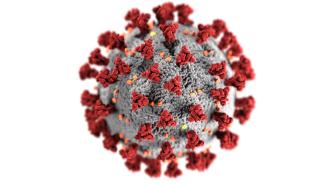Haunting many adults who have been infected by SARS-CoV-2, “long COVID” is the pernicious tail of the pandemic — one mysterious and concerning enough that the federal government is spending over a billion dollars to study it.
Now, a small study from Yale and the Icahn School of Medicine has found that significantly lower levels of the hormone cortisol were the “most significant individual predictor of Long COVID status,” Akiko Iwasaki, Yale professor of immunobiology and study co-author, said in a Twitter thread discussing the study.
The paper, released as a preprint, looked at 215 people — 99 of whom were identified as having long COVID, paired with comparison groups of fully recovered COVID patients and those never infected.
Using a technique called immunophenotyping to draw tens of thousands of data points about biological markers in the subjects and parsing the data with machine learning, the team set out to identify distinguishing biological features of long COVID.
A small study has found that significantly lower levels of the hormone cortisol were the “most significant individual predictor of Long COVID status,” according to Yale’s Akiko Iwasaki.
What is long COVID? Long COVID is an array of symptoms that persist after a patient has cleared their acute infection with SARS-CoV-2.
Such symptoms are known as “sequelae,” and while they have long been a known consequence of viral infections, our medical knowledge about them is limited. Long COVID is spurring researchers to take a closer look at these longer-term impacts.
“Individuals diagnosed with Long COVID frequently report unremitting fatigue, post-exertional malaise, and a variety of cognitive and autonomic dysfunctions; however, the basic biological mechanisms responsible for these debilitating symptoms are unclear,” the researchers wrote in their paper.
In an effort to understand those basic mechanisms, the team looked to identify key differences in immune system features in long COVID patients, knowledge that may eventually help reveal causes and potential therapies or preventatives.
By feeding the broad-spectrum information — including levels of various immune cells, hormones, and other biological features — into machine learning models, the team was able to pull out “significant distinguishing features” that were important in accurately identifying long COVID.
Sign of sequelae: In her Twitter thread, Iwasaki noted multiple key findings in the study.
Low cortisol levels: Low levels of the stress hormone cortisol were the strongest signal both for diagnosing long COVID and for predicting how severe it would be.
Produced by your adrenal glands, cortisol plays multiple roles in the body, including being involved in stress responses, metabolism, regulating blood pressure, and suppressing inflammation.
The team looked to identify key differences in immune system features in long COVID patients.
That last role may explain the connection with long COVID, which other research suggests may be caused by ongoing immune overreaction, even after the virus is cleared.
Other viruses in the mix: The team found some evidence of reactivation of old herpesviruses in long COVID patients, namely the Epstein-Barr virus (which causes mono) and Varicella-zoster virus (which causes chickenpox and shingles).
Possible biomarkers: Long COVID may efficiently be predicted based on immunotherapy signals — namely cortisol levels and two proteins, galectin-1 and IL-8. However, cortisol levels alone were highly accurate predictors in this study.
Limitations: There are caveats that come with these findings, however, which Iwasaki noted in her thread.
Setting aside that it has not yet been peer reviewed or published in a journal, the small sample size means that the findings are likely to be less precise and consistent than larger studies, with thousands of patients.
While the study will need to be validated in larger groups, it may provide clues for potential therapies and diagnostic markers.
It also did not control for other diseases which may closely resemble long COVID or cause low cortisone levels.
“Our studies still need to be validated in other cohorts, but provide many clues for therapeutic avenues, including antivirals and hormone therapy,” Iwasaki told Bloomberg.
Future research may involve validating the findings in larger studies, enrolling and studying volunteers before they become sick to measure the effects of acute COVID infection on these biomarkers, and looking for markers in specific organs, rather than circulating immune factors.
We’d love to hear from you! If you have a comment about this article or if you have a tip for a future Freethink story, please email us at [email protected].






